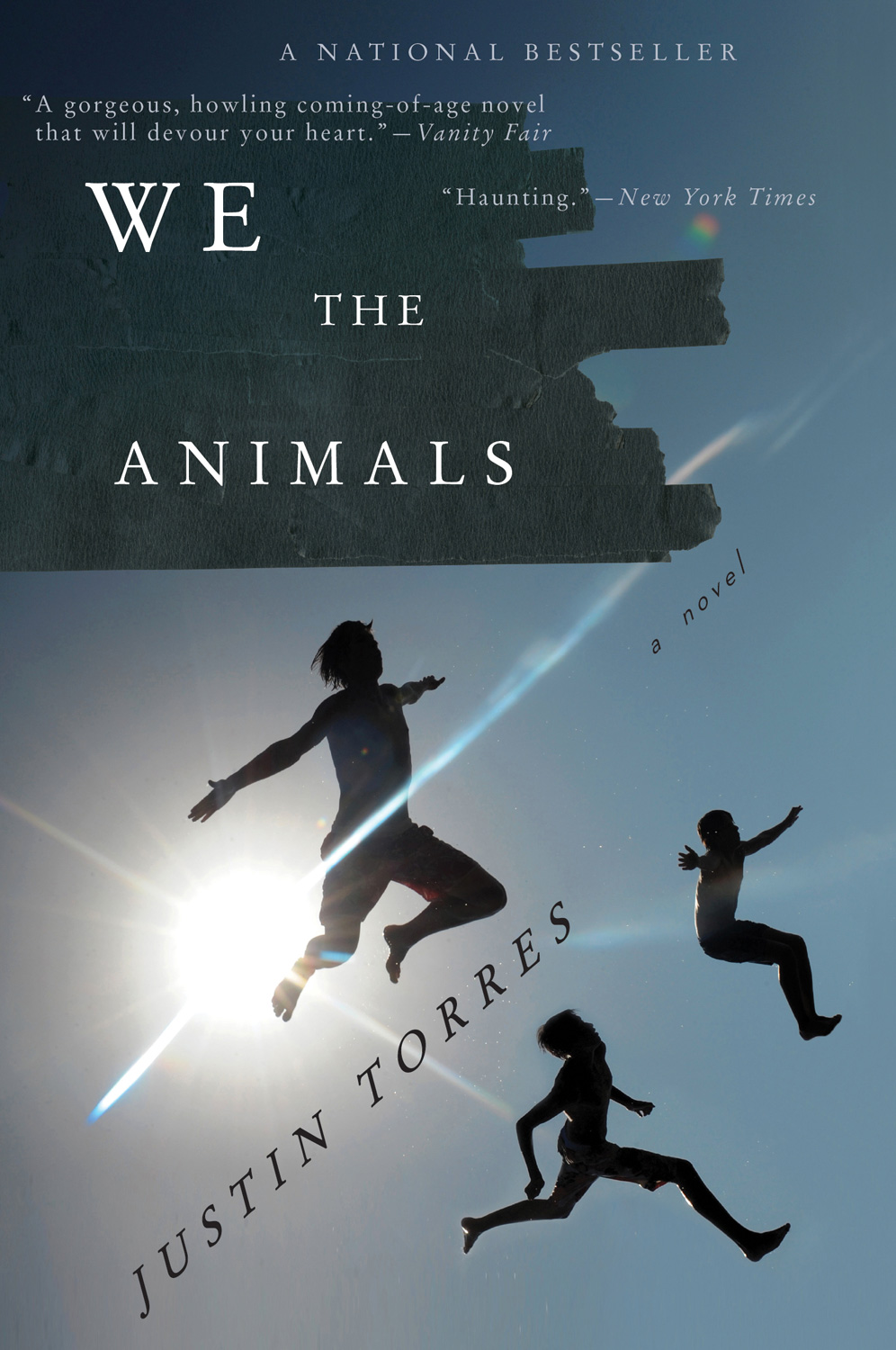When taking the Metro-North Hudson line, there’s a point where the tracks go over the river in such a way that you feel as though you’re floating on water, deep blue, spreading out all around you. I read WE THE ANIMALS while taking this ride in late spring, when the colors of the Earth bloomed in full force, and I remember looking up from its pages to witness this scene that personified how I felt about Justin Torres’s luminous novella: immersed, awestruck, in the middle of something that seemed to stretch into infinity, far beyond what I could take in at one glance.
WE THE ANIMALS clocks in at a mere 128 pages, but it packs a wallop that carries the weight of an epic novel. Some writers create astonishingly beautiful sentences, but as a whole, their work can often fall flat. Torres is the rare writer who excels at the sentence level—with his effortless, fluid prose—but also whose storytelling has the strength to make every expertly crafted scene ring in your ears with force.
WE THE ANIMALS just hit theaters as a film adaptation, and while I’m looking forward to seeing these fervid scenes and vivid characters come to life on the big-screen, I’m not sure anything can match the expertise of Torres’s prose, in all its unrelenting force and sharp poignancy.
WE THE ANIMALS straddles the line between delicate and volatile with every word, centering around a young mixed-race family living in rural upstate New York. Ma is the fragile, struggling white homemaker who works the nightshift at the local brewery and sleepwalks through her days. Paps is Puerto Rican and looks the part of the strong and steadfast patriarch, but in truth, he’s a flight risk who disappears for days at a time and has a brutal mean streak.
The story begins in a Greek chorus comprised of their three sons—the titular “animals” who learn from a young age that to live means to crawl and fight and indulge shamelessly, sometimes primitively. The novel opens with the line, “We wanted more,” and it’s clear that from birth, the boys are destined to live a life of insatiable desires—to want more food, more money, more time, more freedom, more love.
The story is stitched together through a series of lucid vignettes. In perhaps my favorite section, the boys watch their father dig a vast hole in their backyard, and argue about whether it’s a trench or maybe even a grave. When the boys go to explore the gaping void their father has left for them, he calls for them to help him out of it, but instead, he pulls them in with him and holds them there.
Ultimately, WE THE ANIMALS is the story of how the youngest boy, who narrates the novella, climbs out of the hole his family has dug for him, despite their greatest efforts to pull him under. It’s a story for anyone who dares to want more for their life, despite what they’ve been told they deserve or are destined for, for those who race towards that great unknown kicking and screaming—like an animal.








